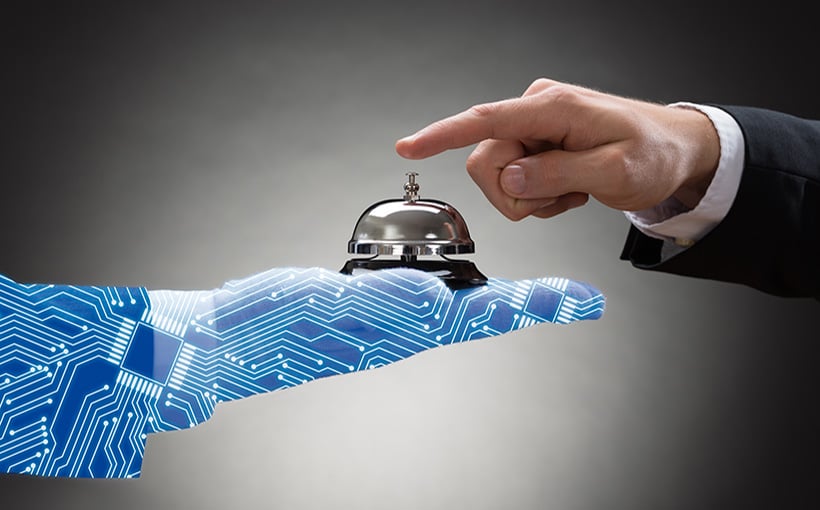The Benefits of Combining Artificial Intelligence with Commercial Real Estate (CRE)
There has been much discussion about the potential advantages of integrating artificial intelligence (AI) into commercial real estate (CRE). Currently, AI is being used for data analytics, asset management, and risk identification in the industry.
A recent article by CBRE experts delved into another aspect of this partnership – its impact on hotels. Titled “AI’s Impact on Hotels,” the authors highlighted how utilizing AI technology can lead to improved customer service, increased margins, and enhanced research and booking experiences for guests.
Here are some ways in which AI could benefit the hospitality sector:
1. Improved operational efficiency: According to CBRE experts cited in the article, implementing AI can help operators achieve greater efficiencies and productivity gains among their knowledge workers. This will also free up more leisure time for travelers which could potentially increase demand for leisure-oriented hotels.
2. Encouraging industry consolidation: The integration of AI is expected to drive partnerships within CRE as well as increase scale benefits while improving access to data.
3. Enhancing bookings: With advanced algorithms at play, hotels will be able to move from offering rooms at a fixed price towards personalized pricing based on each guest’s total revenue potential. Additionally,this may prompt online search engines towards direct sales rather than just lodging opportunities.
4.Building stronger relationships: As per CBRE experts mentioned in the article,the use of technology like AI will influence relationships between hotel brands , third-party management companies,and owners.Moreover,it may also foster stronger ties between online travel agents(OTA),metasearch platforms,and managers .
The piece addressed concerns regarding job losses due to automation but acknowledged that it would likely result in both job losses as well as new employment opportunities.Resort properties might see an uptick thanks,to increased leisure time,but business-focused hospitality establishments might face challenges.However,such changes are not expected within 7-10 years accordingtothe article.
Furthermore,these changes are not likely to occur immediately due to the current cost of capital and pressure on gross operating profits. The authors predict that owners will wait for at least one more upcycle before making significant investments in AI technology.
In conclusion, the potential partnership between AI and hospitality has many benefits for both parties involved. As this trend continues to gain traction in CRE,it is essential for industry players to stay updated with advancements in technology and adapt accordingly.This post was originally published on Connect CRE , a leading source of news and information about commercial real estate trends.



